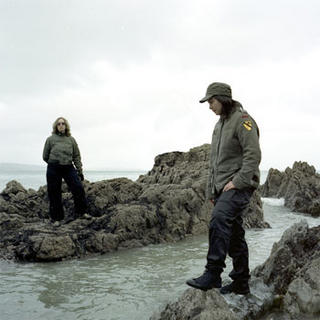Renminbi (Magnetic Island)
“You’re standing at the edge of an abyss, about to jump in, not sure where you are going to end up.”
Renminbi is describing the arresting surge evoked by “The Shore,” the opening track from their long-awaited full-length debut album, “The Phoenix.” But that description also describes the go-for-it-all spirit of the album and the band. And the leap of faith has been a successful one. “The Phoenix” is not a random title, after all, but one that symbolizes Renminbi's sense of rebirth and hope.
Co-founders Lisa Liu (guitar) and SMV (keyboard) have been operating Renminbi for a little more than four years. Liu's driving, thrusting, adventurous guitar explorations find a balance in the sometimes earthy, sometimes ethereal keyboard stylings of SMV. Augmented by a rotation of potent, precise drummers who know how to dance to Liu and SMV’s beat, the permutation has resulted in a new sound and vision for a power trio in the 21st century.
Renminbi’s music is both a journey, and inspired by journeys, geographic and personal. Visits to her family's homeland in the early 2000s were transforming experiences for the Chinese-American Liu. Lisa's first trip connected her to her roots and resulted in the name for her new band: Renminbi is the currency of the People's Republic of China, whose denomination is the yuan; a replica of a 100-yuan note graces the cover of "The People's EP," Renminbi's 2003 debut. The title of the next EP, 2004's "The Great Leap," is a pun that plays on the theme of Mao Tse-tung's modernization plan for China's agriculture and industry known as "The Great Leap Forward." And there are visual puns deployed by SMV in her role as graphic designer: enshrouded on the cover of that second EP is the Golden Gate Bridge, as regal as it is notorious as the site of many of its own great leaps.
“I got the name of the band when I went to visit my paternal grandmother,” Lisa says. “It was the first time we’d met, and even though we didn’t know one another, our bond was so deep. I felt a reconnecting of identity, like I was made whole from the visit to China.”


